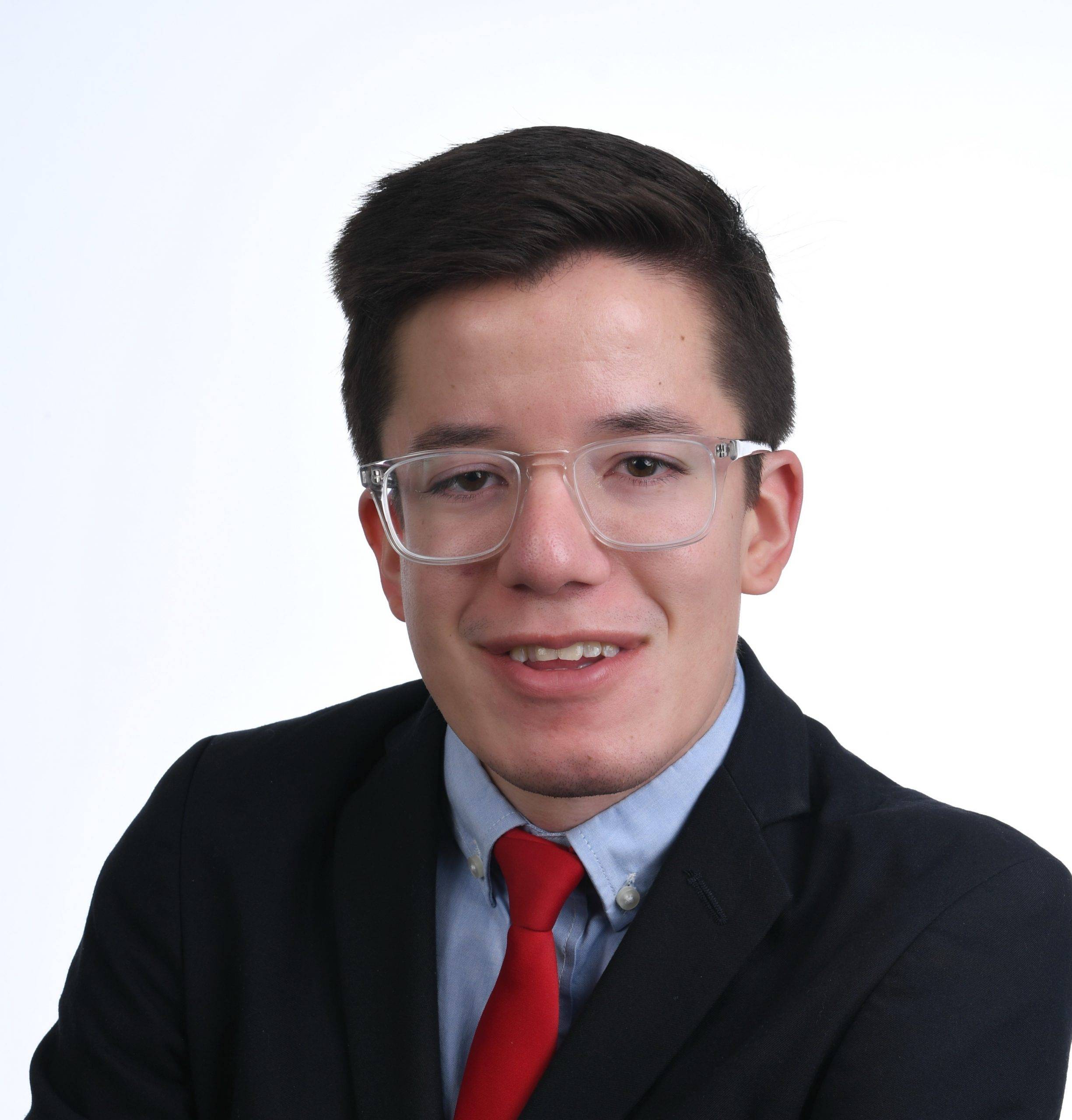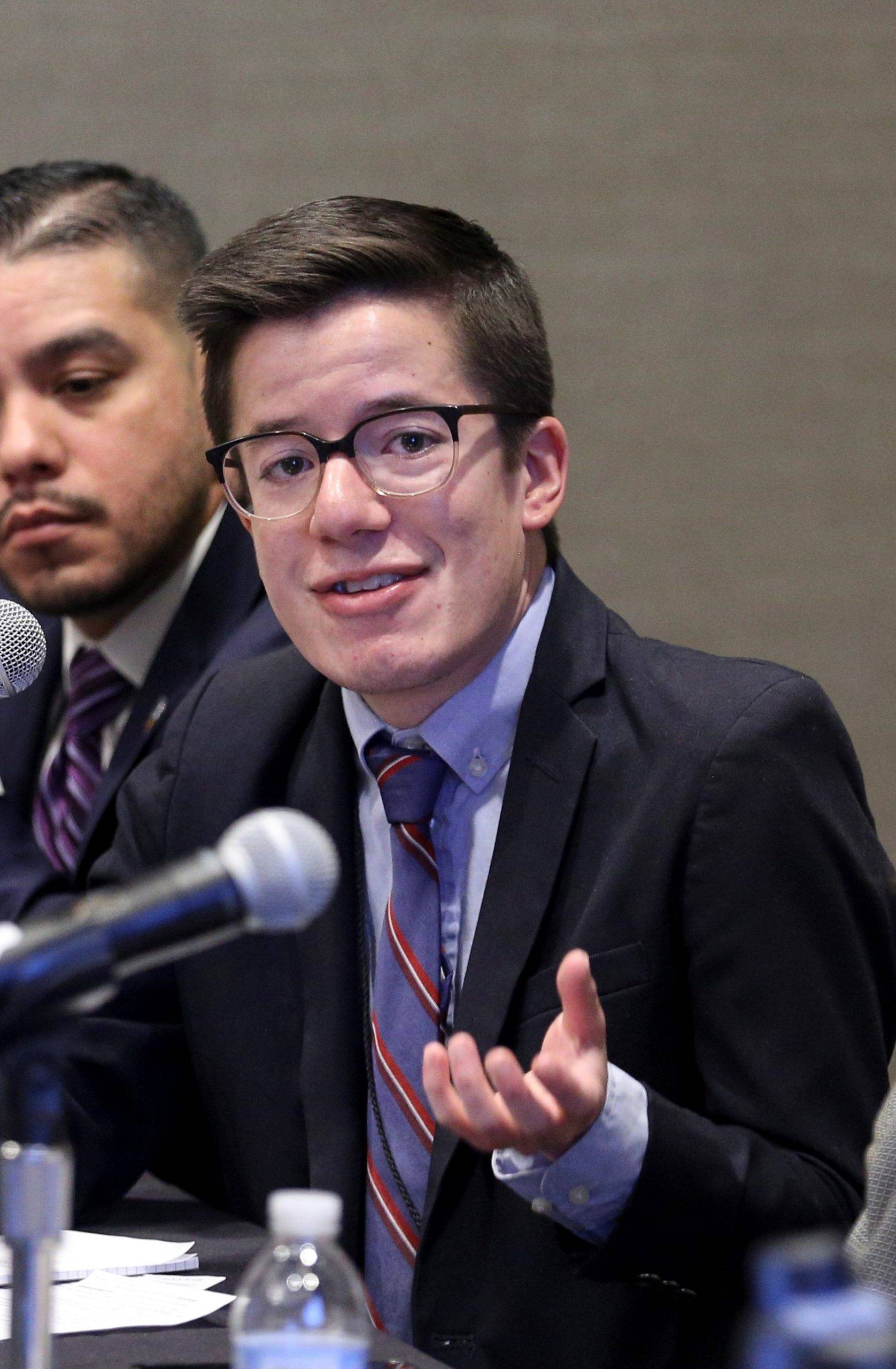Honors College graduate turns his interests in politics and policy into a career with a group dedicated to U.S. immigration practices
Julie Cooper | March 7, 2022

Christian Penichet-Paul (B.A. ’13) is the director of the Higher Ed Immigration Portal for the Presidents’ Alliance on Higher Education and Immigration.
No, not that president.
It refers to university presidents and Texas State, under President Denise M. Trauth, is among 22 universities in Texas to hold membership. The Presidents’ Alliance is a nonprofit, nonpartisan organization that “brings together college and university leaders dedicated to increasing public understanding of how immigration policies and practices impact our students, campuses and communities, and supporting policies that create a welcoming environment for undocumented immigrants and international students.”
Penichet-Paul, 29, has worked in Washington, D.C., since graduating with a master’s degree in American Government from Georgetown University. At Texas State he double majored in history and political science through the Honors College. He also wrote opinion pieces for the University Star and served as an intern in the Texas office of U.S. Rep. Lloyd Doggett.
“My experience with Texas State was, I think, really good, and it prepared me to go to graduate school. I attended Georgetown, which is funny because I graduated from Georgetown High School. From a young age, I was very interested in policy and politics. I knew that I wanted to focus on that area, and specifically on immigration,” Penichet-Paul said. He said he learned very strong writing and analysis skills as a student. “I think that's so important, and I would encourage Texas State students to always continue thinking about applying and coming to D.C. for internships.”
The Presidents’ Alliance was founded by Louis Caldera and Miriam Feldblum. Senior advisor Caldera was the Secretary of the Army in the Clinton administration and a former president of the University of New Mexico. Executive director Feldblum previously served as vice president for student affairs/dean of students and professor of politics at Pomona College, was special assistant to the president at Caltech and senior director for academic support and planning, and a non-resident fellow at the Migration Policy Institute.
What began in 2017 with 17 colleges, has grown to more than 500 members across the country.
Before joining the Presidents’ Alliance, he was a policy and advocacy manager at the National Immigration Forum. “We would summarize policy issues, including legislation, administrative actions. We would conduct outreach to Congressional offices — sometimes members of Congress, but usually… their staffers, and work with them on legislation,” he said.
It was through his work at the National Immigration Forum that Penichet-Paul discovered the importance of unlikely allies working together on immigration issues. “We would work closely with evangelical faith organizations and leaders, law enforcement, businesses and military veterans all of them who, for one reason or another, believed in the necessity to improve… our immigration system, keeping in mind that the immigration system has been in place pretty much the same for the last 50 years and clearly our economy has changed,” he said.

In the years that Penichet-Paul worked at the Immigration Forum much of the national conversation centered on protecting DACA (Deferred Action for Childhood Arrivals) applicants and other undocumented students.
The staff of the Presidents’ Alliance is small — with less than 10 full time staff. They work remotely in Washington, New York, and Los Angeles. Penichet-Paul said he was the third full time staffer hired in 2020. The staff also includes part time workers and contractors.
He joined the Presidents’ Alliance because he knew how important stakeholders are for advancing legislation and, most importantly the impact that presidents and chancellors have in their communities.
In launching the Higher Ed Immigration Portal, Penichet-Paul is creating a platform that integrates data, policy analysis and effective practices to support the undocumented, other immigrant, refugee and international students.
“Something that is cool about the project is that it allows us the opportunity to really look at all state policies and whether in each state undocumented students and refugees students are eligible for in-state tuition at public colleges universities,” he said.
DACA remains on precarious ground. “President Trump attempted to eliminate the program and the way he attempted to do it was struck down by the Supreme Court. It's still open to legal challenges, including one in the Southern District court in Texas. It can still potentially be eliminated through court actions or a future president, should he or she choose to eliminate it,” he said.
There are also policies aimed at making it more difficult for international students to come to the U.S. He stresses, “international students are such an important part of college and university communities.”
Penichet-Paul grew up in Texas and speaks fluent Spanish. He studied German while at Texas State. Looking ahead, he thinks he might like to work for a federal agency — possibly the Department of Homeland Security, which includes U.S. Immigration and Customs Enforcement, U.S. Citizenship and Immigration Services, and U.S. Customs and Border Enforcement.
“So that is definitely an end goal in the future. Beyond that, I just want to be in an occupation or a position where I feel like it can make a tangible difference for individuals, and I think that's what policy work is really all about -- how to improve the situation.”
Share this article
For more information, contact University Communications:Jayme Blaschke, 512-245-2555 Sandy Pantlik, 512-245-2922 |